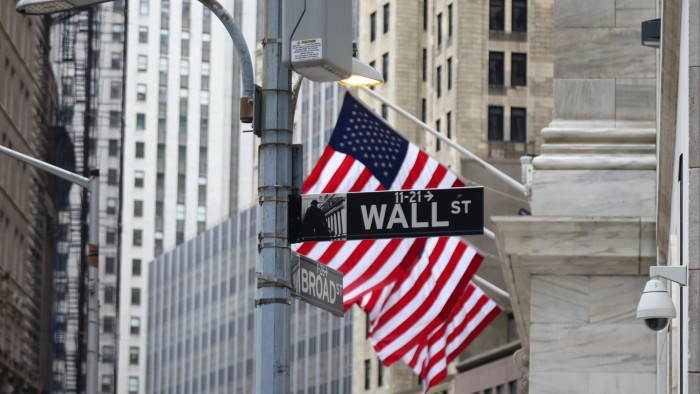Stay informed with free updates
Simply sign up to the US banks myFT Digest — delivered directly to your inbox.
US authorities are preparing to announce one of the biggest cuts in banks’ capital requirements for more than a decade, marking the latest sign of the deregulation agenda of the Trump administration.
Regulators were in the next few months poised to reduce the supplementary leverage ratio, according to several people familiar with the matter.
The rule requires big banks to have a preset amount of high-quality capital against their total leverage, which includes assets such as loans and off-balance sheet exposures such as derivatives. It was established in 2014 as part of sweeping reforms in the wake of the 2008-09 financial crisis.
Bank lobbyists have been campaigning against the rule for years, saying it punishes lenders for holding even low-risk assets such as US Treasuries, hinders their ability to facilitate trading in the $29tn government debt market and weakens their ability to extend credit.
“Penalising banks for holding low-risk assets like Treasuries undermines their ability to support market liquidity during times of stress when it is most needed,” said Greg Baer, chief executive of the Bank Policy Institute lobby group. “Regulators should act now rather than waiting for the next event.”
Lobbyists expect regulators to present reform proposals by the summer. The mooted loosening of capital rules comes at a time when the Trump administration is slashing regulations in everything from environmental policies to financial disclosure requirements.
Critics, however, say it is a worrying time to cut bank capital requirements given the recent market volatility and policy upheaval under the administration of President Donald Trump.
“Given the state of the world, there are all kinds of risks out there — including for US banks the role of the dollar and the direction of the economy — it doesn’t sound like the right time to relax capital standards at all,” said Nicolas Véron, senior fellow at the Peterson Institute for International Economics.
A move to dial back the SLR would be a boon to the Treasury market, analysts say, potentially helping Trump achieve his goal of reducing borrowing costs by allowing banks to buy more government debt.
It would also encourage banks to begin taking a bigger role in trading Treasuries after the industry ceded ground to high-frequency traders and hedge funds as a result of rules put in place after the financial crisis.
Leading US policymakers have expressed support for easing the SLR rule.
Scott Bessent, US Treasury secretary, said last week that such reform was “a high priority” for the main banking regulators — the Federal Reserve, the Office of the Comptroller of the Currency and the Federal Deposit Insurance Corporation.
Fed chair Jay Powell said in February: “We need to work on Treasury market structure, and part of that answer can be, and I think will be, reducing the calibration of the supplemental leverage ratio.”
The biggest eight US banks currently need to have so-called tier one capital — common equity, retained earnings and other items that are first to absorb losses — worth at least 5 per cent of their total leverage.
The largest European, Chinese, Canadian and Japanese banks are held to a lower standard, with most requiring capital of only between 3.5 per cent and 4.25 per cent of their total assets.
Bank lobbyists hope the US will bring its leverage ratio requirements in line with international standards.
Another option considered by regulators is to exclude low-risk assets such as Treasuries and central bank deposits from the leverage ratio calculation — as happened temporarily for a year during the pandemic. Analysts at Autonomous estimated recently that reintroducing this exemption would free up about $2tn of balance sheet capacity for big US lenders.
But this would make the US an international outlier and regulators in Europe worry it could prompt lenders to push for similar capital relief on holdings of Eurozone sovereign debt and UK gilts.
Most big US banks are more constrained by other rules such as the Fed’s stress tests and risk-adjusted capital requirements, which may limit how much they benefit from SLR reform. Morgan Stanley analysts estimated recently that only State Street was genuinely “constrained” by the SLR.
“Aligning US rules with international standards would give more capital headroom to the big banks than exempting Treasuries and central bank deposits from the supplementary leverage ratio calculations,” said Sean Campbell, chief economist at the Financial Services Forum lobby group, which represents the eight biggest US banks.
The Fed, the OCC and FDIC declined to comment.
Read the full article here




